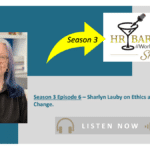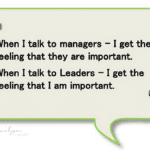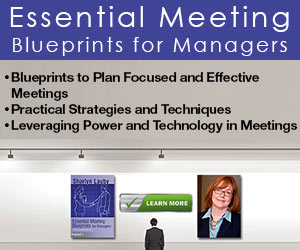I wrote a post recently about ethics having the price tag of $8,000. Well, the Harvard Business Review has published another statistic; this one about the relationship between sleep and ethics.
Lack of Sleep Leads to Unethical Conduct
People who cheated in an experiment had slept an average of 22.39 minutes less the night before than non-cheaters, according to research led by Christopher M. Barnes of Virginia Tech. The study, in which cheaters over reported their scores on a test in order to gain financial advantage, shows that low levels of sleep are associated with unethical behavior. Managers who demand results that require employees to stay up late and miss sleep may be increasing the likelihood that workers will fudge results and engage in other forms of cheating, the researchers suggest.
(Insert sarcasm here.) Seriously?! Lose a half-hour of sleep and get branded a cheater. I wonder what happens if you lose sleep and get offered $8,000. Can you imagine the ethics violations that might surface?
The truth is sleep is important. It helps us remain healthy and alert. Being deprived of sleep will impact our disposition and ability to function. The study above implies it will cloud our judgment.
I wanted to share the stat with you because I believe ethics is such an important topic. As leaders, it’s our responsibility 
Tony Schwartz, CEO of The Energy Project, wrote a great post about the importance of sleep including a few tips to get better sleep. It’s a great read and you can check it out here. Or, you can just read a few more of my posts to lull you to sleep. HA!
If lack of sleep contributes to unethical behavior, it only seems logical that getting good sleep helps us to be better. I’m curious. How do you make sure that you sleep well?
Image courtesy of jorel314







Brendan says
The body’s daily schedule isn’t the same as a workplace daily cycle and sleep isn’t consistent with workplace ideals. Most of us hit a low around 4 PM – think of that when you are driving home. Sleeping at work is generally an offense that leads to suspension or dismissal, but a short nap often improves productivity, mood, attention, etc.
Christina says
Ha, well… I don’t get awesome sleep because I have a 12 month old baby. I would hardly consider any of my work decisions this past year “unethical” because my kid wakes me up a lot at night. In fact, I almost find it ridiculous, but I’m purely thinking about my situation, not anyone else’s. I just read the abstract (didn’t pay to view the whole article), but I think I would be interested to know what behaviors drove the lack of sleep and then see if there was a correlation to unethical behavior. In my mind, just pure lack of sleep doesn’t prompt people to be unethical… it just prompts them to take the lazy route.
As for “tips” to getting a good night’s rest? I’d say a good bedtime routine. And being a new mom, I still try to nap when baby naps. 😉
Rocky says
Good post. Weirdly, some pride themselves of having to “grind” and sleep only 4-5 hours a night. Surely one can’t be fully productive with only so little sleep.
Sharlyn Lauby says
Thank you so much for contributing to the conversation. It’s interesting to hear everyone’s POV.
ladie mrmolade says
i remember when i studied i thought it wasn’t impossible to get less sleep than i got, but later on i started working and it changed my mind ;p
Javann Jones says
Believe it or not, I’ve found that the best way to get sleep is by having a full day of activity, and keeping a regular bedtime. Great article!
– J
Also, I’m one of those that only sleeps five hours a night. I’ve noticed that every two weeks I want to sleep more on the weekend. And so I do. It feels great! 🙂